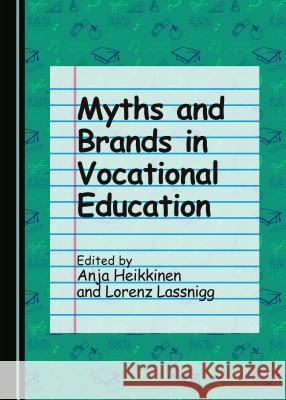Myths and Brands in Vocational Education » książka
Myths and Brands in Vocational Education
ISBN-13: 9781443880169 / Angielski / Twarda / 2015 / 260 str.
This book discusses whether certain approaches to (vocational) education have become mythicized and branded, and the reasons for and consequences of this commodification. Additionally, the book also investigates how researchers are contributing to mythicizing and branding in education. Although trans-national and comparative studies are increasingly taking into account historical and cultural ideas, is this a result of the exploitation of historical and cultural research for industrial purposes and education export? Educational brands should attract global customers and advertise countries as smart environments for global investments. Universal models of (vocational) education typically build on interpretations from the Anglophonic, German and French regions of the world. This book, however, investigates perspectives from unexplored and under-discussed linguistic contexts, particularly Spanish, Italian, Swiss and Austrian regions and the use of East-Asian and East-African myths and brands, which, although influenced by Europeanization, continue local traditions. Furthermore, while approaches to education in the Nordic region may differ from those in the rest of Europe, an additional section of the book deals with myth and brands in Norway, Finland and Sweden, with some comparisons with British, French and German traditions. As such, this book provides historical insights into the use of myths and brands in education, investigates the differences in such use in various educational contexts, and offers relevant policy-analytical and theoretical interpretations. It will be of particular interest for scholars and students interested in tensions between the local and the global in education, and their connections to both politics and the economy, and invites readers to think beyond their own conventional conceptual frameworks.











